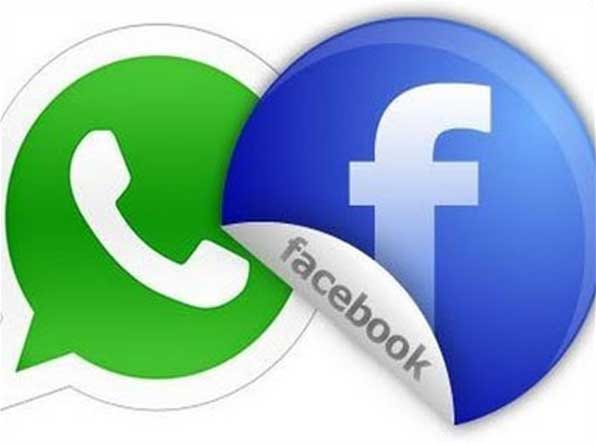In the insurgency hit Kashmir valley, spread of social media and cell phones has created the phenomenon of ‘flash crowds’ at the site of encounters. In addition media like face book and you tube are being used to great advantage to carry out propaganda. Burhan Wani, whose killing led to the current bout of violence in the valley was a creation of internet and face book. The usual response of the govt. has been to suspend internet and cell phones in the affected area, after the event.
In last few months rumours of ‘child lifting’ in some places has led to mob lynching of innocents. Some years ago, anti-national elements successfully used social media to create panic amongst citizens of North Eastern origin due to violence in Myanmar leading to mass exodus of students from places like Pune and Bangalore.
The state’s response to this looming threat has been mainly knee-jerk reactions of shutting down the network in affected areas for a brief period. Any attempt to control the new media has met with stiff resistance by civil liberties groups. The judiciary as well as generally sided with the opponents of any control amidst fear of a ushering in a ‘surveillance state’ on the lines so well described in the epic novel ‘Nineteen Eighty four’ by George Orwell. The picture of ‘Big Brother’ watching over all our activities has been a very powerful motivation for opposing control over social media.
To holistically understand the issues we face today, a look back at history of development of mass media is a necessity. Vladimir Iliych Lenin, the Russian revolutionary and founder of Soviet Union had famously remarked that if word is more powerful than bullets, then why should we permit every idiot or criminal to own a printing press? Control of print media was an article of faith in the totalitarian Communist regime. It is widely accepted that invention of printing press in 15th century by Gutenberg was one of the revolutionary events that had far reaching effect on human civilization. It spurred on the process of spread of information and knowledge and led to democratization of the society and spelled end to feudalism. It took nearly 400 years when a new powerful media was born in 1906 in the form of wireless radio. It took only 46 more years for birth of another powerful medium of mass communication, the television. Another mile stone was crossed with the launch of direct broadcast satellite television in 1970s challenging the national boundaries and making international television a reality.
All these methods of mass communication had one common theme- the media was unidirectional and control was in the hands of the broadcasters with people as passive recipients of ‘message’ or information. Societies through their governments had a measure of control over the content. The use of media needed resources like printing press, radio station and transmitters or television studio and transmitters. These were beyond means of individuals and needed organisation, finance and space. With these constraints or vulnerabilities, it was possible for the state to control these through rules and regulations including control over content and a degree of censorship. Most countries had a system of licenses and permits.
With the current digital media revolution, an individual has the ability to run his own digital newspaper, radio and even a television station (thanks to you tube or face book). Unlike the old media, there are no controls over the individual using these means of mass communications. Attempts to have some form of control over these sources have been opposed on the grounds of ‘freedom of expression’ and ‘right to privacy’. What these advocates of ‘freedom’ forget is that freedom of expression is not an unfettered right. As Winston Churchill had pithily put, “your freedom ends where my nose begins!” The opponents of control over social media forget that both the print and electronic media, though free, are liable to prosecution for the content on various grounds. The advocates of ‘free’ internet and social media have confused the issue by equating ‘privacy’ with anonymity. If a media is being used for mass communication, whether you tube or what’s app, it is no longer a private communication and needs to be subject to the same restraints as a television channel or a newspaper. Suitable measures like linking Aadhar number with cell phones will be able to take care of anonymity behind which most misusers of social media hide. It is time to clear this confusion between mass communication and private communication and freedom of expression vs anonymity.
A major debate is going on in the United States over interference in its elections by Russia through social media. As India approaches its General Elections next year, we have to be mindful that our adversaries are bound to use social media to swing electoral outcome in favour of their preferred party.
A serious and clear headed debate on the issue of freedom of expression, social responsibility, anonymity and data security is the need of the hour. While the danger of ‘Big Brother’ watching over our lives is legitimate, digital anarchy or blatant foreign interference or social strife in our country also needs to be prevented through proactive action. Judicial and administrative measures have to keep pace with fast changing technology. Just an example of how quantitative change leads to qualitative one is computing power- today’s smart phone has more than a million times more computing power than the computers NASA used for moon landing!






Excellent article on security of our nation being targeted through social media. The real problem is how to reign in the so called crusaders for personal liberty combined with judiciary that gives second place to security of nation over Article 14 of constitution. The debate should be how to combat these crusaders and what weapon , tools and wherewithals we can use against these people.?